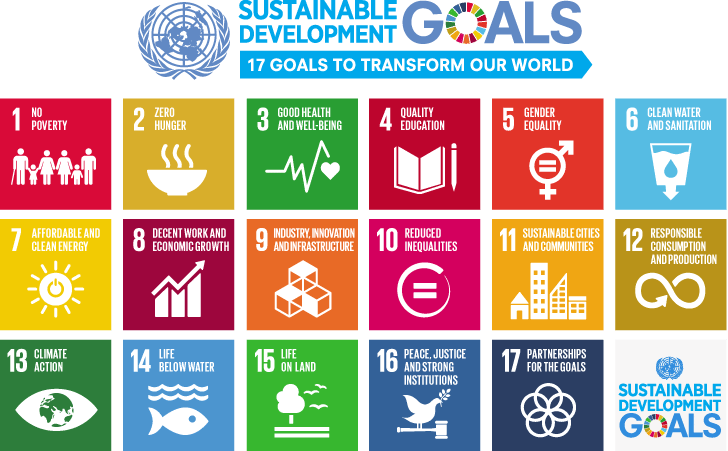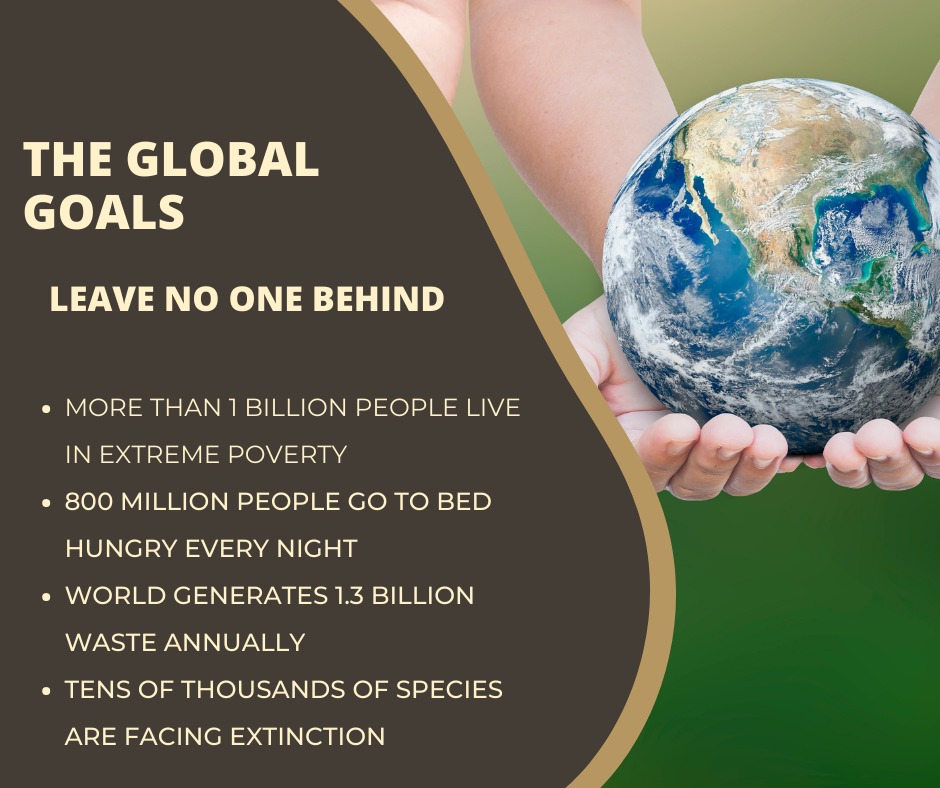Contact: +91 99725 24322 |
Menu
Menu
Quick summary: Business leaders have understood that sustainability is an investment. As part of the efforts to strengthen companies’ corporate responsibility in different industries, the Global Corporate Sustainability Index rates their adherence to Environmental, Social and Corporate Governance (ESG). . Businesses need to embed sustainability in all parts of their organization and translate it into their brands.

In today’s rapidly evolving world, companies are increasingly realizing that their success is not solely defined by profit margins and shareholder returns. Instead, the key to long term prosperity lies in aligning business objectives with a greater purpose, one that addresses the pressing global challenges and creates a positive impact for both society and the planet. This realization has brought about a monumental shift in corporate strategy, with the integration of the Sustainable Development Goals at the core.
According to United Nations Global Compact (UNGC), 92% of CEOs consider the SDGs to be important for the future success of their business.
In this blog post, we delve into the immense significance of incorporating the SDGs into corporate strategy and explore how they can drive innovation, enhance brand reputation and foster long term business success.

The 17 SDGs with their 169 associated targets are part of the United Nations 2030 Agenda for Sustainable Development. This action plan seeks countries and stakeholders to collaborate to address the three dimensions of sustainable development: economic, social, and environmental.
From ending poverty to reducing hunger, improving access to education and healthcare, to fight against inequalities, the SDGs are an urgent call to action for all the countries in a global partnership.
The SDGs are a framework for government agencies and NGOs to design and refine their policy decisions. In order to strengthen collective action, ground up, Sustainable Development Goals provide a political compass to show the direction and steer us towards the development goals.
Sustainable Development Goals offer a much-needed platform for cultivating trust and building common priorities among nations. The targets of the 2030 agenda are tough to reach and the ‘Business-as-Usual” approach will not make sense. Sustainable development has become a strategic area for the business sector. According to a recent Accenture survey, “Consumers pay real attention to where companies stand on social and environmental issues. Business leaders have understood that sustainability is an investment. The 2030 Agenda- with the United Nations 17 Sustainable Development Goals (SDGs) -is one of the leading frameworks to guide them on this path.
7.5 billion people inhabit this beautiful planet shaped with forests and rivers; however this world is getting increasingly complex, challenged with political and economic instability. The growing needs, consumer preferences, investor demands and rising inequality are affecting businesses and each one of us. The breadth of Sustainable Development Goals will provide sustainable development for the well-being of people and the planet. The achievement of these 17 SDGs will provide a sustainable future for us and generations to come.

The Sustainable Development Goals go beyond the specified goals because they address the root causes of poverty and leave no one behind. There is an emphasis on tackling climate change and protect the environment through sustainable production and consumption. These goals are intended to be universal applying to all countries.
The Sustainable Development Goals are a result of a global consensus of 193 countries coming together in agreement on an ambitious agenda for development towards people and the planet by 2030. Achieving these goals requires collective action across governments, societies, communities and the private sector.
Businesses play a vital role in the achievement of the Sustainable Development Goals due to their immense influence, resources and ability to drive transformative change. As key drivers of economic growth and innovation, businesses have the power to shape societies and impact the environment. By integrating SDGs into their core strategies, operations and supply chains, businesses can contribute to addressing global challenges such as poverty, inequality, climate change and sustainable development. Through responsible business practices, companies can create new markets, foster social inclusion, promote sustainable consumption and production and drive technological advancements. Businesses can also leverage their financial resources, expertise and networks to mobilize investments, collaborate with governments and drive collective action. Businesses can not only secure long-term profitability but also contribute to a more equitable, resilient and sustainable future.
Achieving the Sustainable Development Goals create at least US$12 trillion in business opportunities.
Businesses can contribute to SDGS in many ways:
What are the biggest challenges for companies when it comes to setting and achieving sustainability targets? Enterprises of all sizes are facing increasing pressure to not only commit to reducing carbon dioxide emissions, eliminating plastic waste and promoting clean water and clean energy but also to embrace gender equality, sustainable communities and other UN SDGs. The concept of net-zero is just the beginning, as leaders understand the importance of going beyond mere carbon reductions. Sustainability champions aim to leave a positive and lasting impact on the environment and society.
Sustainability targets require addressing issues that span across different stakeholders within an organization. This is complex and is challenging to identify and prioritize relevant targets and develop strategies.
Integrating sustainability targets into core business strategy and operations is a significant challenge. There could be a lack oh coherence and coordination without aligning these goals.
Gathering accurate and reliable data on sustainability metrics can be daunting. Companies face difficulties in collecting relevant data, ensuring data quality and consistency and establishing robust measurement frameworks to track progress towards targets.
Resource Constraints
Implementing sustainability initiatives requires significant investments in terms of financial resources, technology upgrades and capacity building.
Supply Chain complexity
Ensuring transparency, traceability and responsible practices throughout the supply chain can be challenging when dealing with a large number of suppliers and partners.
Engaging stakeholders is crucial for achieving sustainability targets. It requires dedicated efforts to foster engagement and collaboration.
Navigating the evolving regulatory landscape and staying compliant with sustainability laws and regulations is challenging. Overcoming these challenges requires a strong commitment, stakeholder engagement, robust measurement and reporting systems and sustainability integration within company’s operation.
Trace Carbon, sustainability and carbon management platform of TraceX helps companies to assess their GHG emissions and carbon footprint across their operations, supply chains and products. This data enables companies to identify areas of improvement and set reduction targets aligned with SDG targets. The solution scan provides insights and strategies for optimizing energy consumption, reducing waste and conserving resources. By improving efficiency and adopting renewable energy sources, companies can reduce their environmental footprint and contribute to SDG goals such as SDG 7 and SDG 12.
These solutions can streamline the collection, analysis and reporting of sustainability data to meet reporting requirements and comply with relevant frameworks such as the Global Reporting Initiative (GRI) or the Task Force on Climate-related Financial Disclosure (TCFD). This transparency helps companies track progress towards SDGs and demonstrate their commitment to sustainable practices. Sustainable supply solutions enable companies to assess and manage the environmental and social impacts of their suppliers. This contributes to SDGs related to decent work (SDG8), responsible production and consumption (SDG12) and sustainable communities (SDG11). The platform facilitates collaboration and fosters partnerships supporting the SDG 17 which emphasizes importance of stakeholder partnerships.
Trace Carbon helps companies measure sustainability metrics like soil health, water usage, biodiversity conservation and socio-economic indicators. Measuring these metrics provides a mean to track progress towards the SDGs. By monitoring indicators related to soil health, such as nutrient content and organic matter, biodiversity indices and social factors like income inequality and gender equality we can assess the extent to which we are moving closer to achieving the SDGs.
Incorporating SDGs into corporate strategy is not just a responsible choice but a strategic imperative for businesses today. The SDGs provide a framework that addresses the world’s most pressing social, economic and environmental challenges. By aligning their goals and activities with the SDGs, companies can foster innovation, enhance brand reputation, mitigate risk and tap into market opportunities. Embracing the SDGs as the heart of corporate strategy empowers businesses to contribute to a more sustainable and equitable world while ensuring their long-term viability and success.
